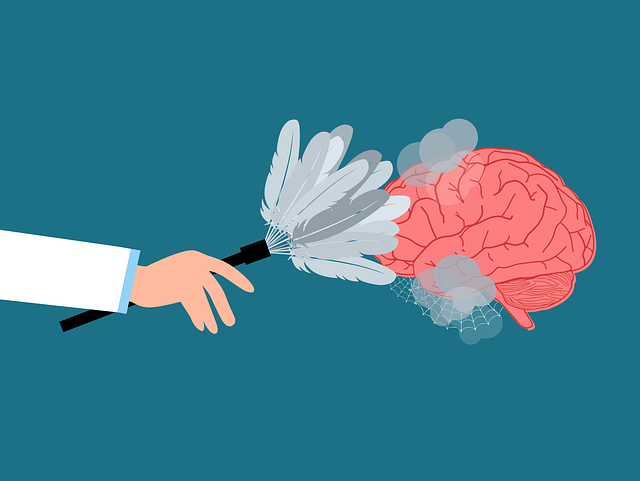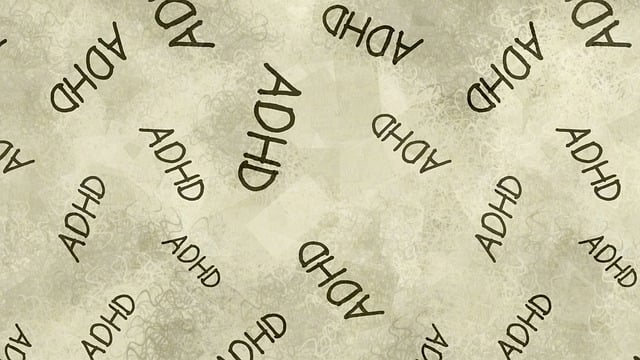Colorado Springs Mental Health Evaluations are pivotal in personalizing therapy journeys, employing diverse assessment methods to uncover unique strengths and challenges. These evaluations go beyond diagnoses, promoting mindfulness and conflict resolution for improved mental wellness. Using a mixed-methods strategy including structured interviews, self-report questionnaires, and observational assessments, professionals gain a holistic view of clients' experiences, symptoms, and coping mechanisms. The process measures both quantitative and qualitative improvements in programs like reduced symptoms of depression, anxiety, PTSD, enhanced coping, and quality of life, aligning with Mind Over Matter Principles for strategic decisions optimizing client outcomes in Colorado Springs mental health therapy.
In the pursuit of optimal mental wellness, evaluating program effectiveness is paramount. This article explores comprehensive methods for assessing mental health initiatives in Colorado Springs, serving as a guide for therapists and stakeholders. We delve into foundational Colorado Springs mental health evaluations, uncovering key tools and techniques that underpin successful programs. Furthermore, we scrutinize impact measurement strategies to ensure the success and progress of mental health interventions within this context.
- Understanding Colorado Springs Mental Health Evaluations: A Foundation for Effective Therapy
- Key Methods in Mental Wellness Program Evaluation: Tools and Techniques
- Measuring Impact and Progress: Assessing the Success of Colorado Springs Mental Health Programs
Understanding Colorado Springs Mental Health Evaluations: A Foundation for Effective Therapy

In Colorado Springs, mental health evaluations serve as a foundational step towards effective therapy and improved mental wellness. These comprehensive assessments are designed to understand an individual’s unique psychological landscape, including their thoughts, feelings, behaviors, and overall mental state. By employing various techniques such as clinical interviews, psychometric testing, and self-care practice evaluations, professionals gain insights into potential challenges and strengths. This process is crucial in tailoring therapeutic interventions to meet specific needs, ensuring that the journey towards healing and growth is personalized and impactful.
Colorado Springs Mental Health Evaluations go beyond diagnosing disorders; they aim to uncover underlying issues that may be contributing to mental health struggles. Incorporating mindfulness meditation and conflict resolution techniques as part of self-care practices can further enhance this process. These evaluations empower individuals to take charge of their mental wellness, fostering a sense of agency and resilience as they navigate therapy and embark on a path towards a more balanced and fulfilling life.
Key Methods in Mental Wellness Program Evaluation: Tools and Techniques

In evaluating mental wellness programs, a multifaceted approach is crucial to ensure the effectiveness and impact of interventions in Colorado Springs mental health evaluations therapy. Key methods include structured interviews, self-report questionnaires, and observational assessments. Structured clinical interviews, such as the Diagnostic and Statistical Manual (DSM) criteria, help diagnose mental health disorders accurately. Self-report tools like the Beck Depression Inventory (BDI) or Rosenberg Self-Esteem Scale capture participants’ subjective experiences, offering insights into symptoms, coping mechanisms, and self-perceived improvements in areas like self-esteem improvement and inner strength development.
Observational techniques, including direct interaction and structured observations, provide valuable qualitative data. These methods allow evaluators to assess engagement in therapy, treatment adherence, and non-verbal cues that might indicate underlying emotional states or progress. Incorporating a mix of quantitative (e.g., surveys) and qualitative (e.g., interviews, observations) tools in mental health policy analysis and advocacy ensures a holistic understanding of program effectiveness, guiding improvements and strategic decisions for optimal client outcomes.
Measuring Impact and Progress: Assessing the Success of Colorado Springs Mental Health Programs

Evaluating the impact and progress of mental wellness programs is a critical aspect of understanding their success and identifying areas for improvement. In Colorado Springs, various methods are employed to assess the effectiveness of mental health interventions. These evaluations go beyond simply measuring participant satisfaction, delving into tangible improvements in individuals’ lives.
The process often involves quantitative data collection through surveys and statistical analysis to track changes over time. This includes metrics related to reduced symptoms of depression, anxiety, or post-traumatic stress disorder (PTSD), as well as improved coping mechanisms and enhanced overall quality of life. Additionally, qualitative feedback from participants and therapists provides valuable insights into the perceived benefits, such as increased resilience, better stress management, and improved relationships—all aligned with Mind Over Matter Principles. The integration of Trauma Support Services and Burnout Prevention strategies within these programs further underscores the holistic approach to mental wellness in Colorado Springs.
Evaluating mental wellness programs is crucial for ensuring the effectiveness of therapy in Colorado Springs. By understanding the foundational methods like comprehensive mental health evaluations, utilizing robust tools and techniques, and consistently measuring impact and progress, we can optimize support for individuals seeking mental health services. Integrating these practices allows us to assess the success of programs, make data-driven improvements, and ultimately enhance the well-being of those in need within the Colorado Springs community.










